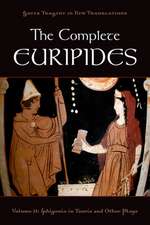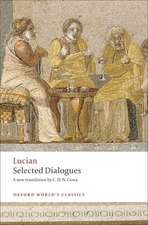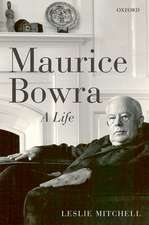Fragments and Assemblages: Forming Compilations of Medieval London
Autor Arthur Bahren Limba Engleză Paperback – 31 mar 2015
In Fragments and Assemblages, Arthur Bahr expands the ways in which we interpret medieval manuscripts, examining the formal characteristics of both physical manuscripts and literary works. Specifically, Bahr argues that manuscript compilations from fourteenth-century London reward interpretation as both assemblages and fragments: as meaningfully constructed objects whose forms and textual contents shed light on the city’s literary, social, and political cultures, but also as artifacts whose physical fragmentation invites forms of literary criticism that were unintended by their medieval makers. Such compilations are not simply repositories of data to be used for the reconstruction of the distant past; their physical forms reward literary and aesthetic analysis in their own right. The compilations analyzed reflect the full vibrancy of fourteenth-century London’s literary cultures: the multilingual codices of Edwardian civil servant Andrew Horn and Ricardian poet John Gower, the famous Auchinleck manuscript of texts in Middle English, and Chaucer’s Canterbury Tales. By reading these compilations as both formal shapes and historical occurrences, Bahr uncovers neglected literary histories specific to the time and place of their production. The book offers a less empiricist way of interpreting the relationship between textual and physical form that will be of interest to a wide range of literary critics and manuscript scholars.
Preț: 229.94 lei
Nou
Puncte Express: 345
Preț estimativ în valută:
43.100€ • 45.94$ • 36.41£
43.100€ • 45.94$ • 36.41£
Carte tipărită la comandă
Livrare economică 05-19 aprilie
Preluare comenzi: 021 569.72.76
Specificații
ISBN-13: 9780226269405
ISBN-10: 022626940X
Pagini: 296
Ilustrații: 7 halftones
Dimensiuni: 140 x 216 x 20 mm
Greutate: 0.38 kg
Editura: University of Chicago Press
Colecția University of Chicago Press
ISBN-10: 022626940X
Pagini: 296
Ilustrații: 7 halftones
Dimensiuni: 140 x 216 x 20 mm
Greutate: 0.38 kg
Editura: University of Chicago Press
Colecția University of Chicago Press
Notă biografică
Arthur Bahr is associate professor of literature at the Massachusetts Institute of Technology.
Cuprins
List of Figures, Acknowledgments
INTRODUCTIONCompilation, Assemblage, Fragment
CHAPTER ONE
Civic Counterfactualism and the Assemblage of London
The Corpus of Andrew Horn
CHAPTER TWO
Fragmentary Forms of Imitative Fantasy
Booklet 3 of the Auchinleck Manuscript
CHAPTER THREE
Constructing Compilations of Chaucer’s Canterbury Tales
CHAPTER FOUR
Rewriting the Past, Reassembling the Realm
The Trentham Manuscript of John Gower
Afterword, Bibliography, Index
Recenzii
“[Bahr’s] attractively written, often witty book, informed by a wide range of scholarship, elegantly demonstrates one way of using material form in the service of critical analysis.”
“[E]ngaging and thoroughly enjoyable. . . . Highly recommended.”
“Bahr’s Fragments and Assemblages is the realization of a kind of literary codicology that has been long promised but slow to emerge. In this selective, elegant study of late medieval English literature, Bahr re-approaches several important texts and textual communities through the prism of manuscript research. The book weaves together codicological research with literary close readings and connects literary production with historical contexts to produce an exciting re-visioning of literate culture in fourteenth-century London. . . . Bahr cleverly posits critical practice itself as an assemblage, and constructs the readerly community, which includes authors, manuscript makers, readers and critics, as a kind of assemblage akin to the urban community of medieval London. He invites to rest of us to share in the ‘compilational game’ of reading manuscript culture in these expanded and fluid ways, and it is a challenge I hope many other readers will take up.”
"The most exhilarating aspect of [Bahr's] approach is his intelligent alertness to the wide, branching questions raised by any attempt to place books (as opposed to authors or readers) in their social and historical context. Deeply intrigued, rather than merely discouraged, by an old book’s fragmentary, incomplete, often damaged state, Bahr gives full rein to his subtle, probing attempts to understand the assumptions, fantasies, and accidents that caused such miscellaneity to survive, more or less intact, for our curious, speculative examination. He leaves his reader not only eager to open an old book but also more reflective about the extraordinary density of intellectual and imaginative desire that may be represented in the history of its physical state."
"Bahr’s excellent and highly readable new book offers us, in addition to a series of well-argued and fascinating arguments about individual medieval texts, a new methodology for manuscript studies. . . . Bahr urges medievalists to 'read compilationally,' by which he means taking seriously the authorial impulses not only of individual poets, but also of the compilers who set out their works in the larger manuscript contexts in which we now have them. . . . Scholars who are alienated by codicology or the history of the book will find in this book a way of integrating manuscript studies with close readings, historical analysis, and literary theory."
“In this remarkably erudite and elegantly argued book, Arthur Bahr makes the compelling case for the meaning of medieval literature in its manuscript environment. Building on much recent scholarship in the study of the handwritten book, Bahr shows how literary value often lies along the fissures of the fragment. Medieval English compilations—whether they be the concatenations of the Auchinleck manuscript, or the various assemblies of Chaucer’s Canterbury Tales—are not as unified as they might seem. Bahr’s powerful analyses of these and other texts as physical objects demonstrates, in his words, how ‘the literary can be found, delighted in and nurtured’ at the intersection of ‘codicological form and textual content.’ Fragments and Assemblages makes a powerful case for medieval literary study grounded equally in the archive and the imagination.”
“Fragments and Assemblages makes the striking claim that the standard treatment of Chaucer and other Ricardian poets, as figures who broke with the past in order to inaugurate a new kind of literary writing in English, must be revised in light of textual evidence. Arthur Bahr works carefully with fourteenth-century manuscripts in order to show us connections from Andrew Horn to the Auchinleck manuscript to Chaucer and Gower; he thereby stitches together the divided fourteenth century and demonstrates that literary production during the period was an ongoing and continuous project. At the same time, he also makes an important methodological statement about the significance of formalism to the study of manuscripts and to historical work. All of the texts he discusses are compilations, which he categorizes as either ‘fragments’ or ‘assemblages’ in order to suggest that there is a necessary dialectic between them: the works he describes all betray evidence of being assembled for a larger purpose, but they simultaneously exist as fragments, both physically and in the abstract. This double approach enables Bahr to construct an original and creative new account of fourteenth-century writing, one with which all scholars of late medieval literature will want to engage.”
“Arthur Bahr’s scholarship is deeply learned and technically skillful, as he invests codicology with the larger promises of formalism. But have no fear: Bahr’s prose sparkles with intellectual delicacy, energy, and pleasure. This is scholarship voiced in an especially agreeable and distinctive way. I enjoyed reading Fragments and Assemblages enormously.”
"Bahr's book not only demonstrates the ways in which two traditionally seperate spheres of inquiry, codicology and literary analysis, can work together to refresh well-mined primary sources; it also encourages scholars in other fields to contribute their interdisciplinary expertise to his project. Marshalling a range of critical approaches becomes itself a compilational endeavour."
















